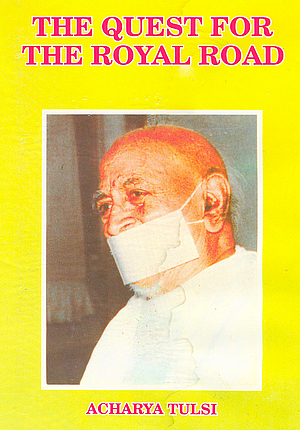Getting Rid of Despair
Man is an active creature. Endeavour is his adornment. He shines out as much as he endeavours. Lack of endeavour is a course. But even while knowing this, man turns away from doing his karma. He blames circumstances for his intertness. But who does not have to face the circumstances? But a diligent person gets over his circumstances and marches ahead. It is the indolent person who succumbs to his circumstances.
Everyone in a particular village was ready for shramadana. However, one person stood there with a crestfallen face. Someone asked him, "Brother, everybody is engaged in doing work. Why don't you help?" That man said, "I am hungry. I cannot work with an empty stomach." The people of that village took pity on him and gave him sumptuous meal. Even after eating he still stood there as before. Again those people asked him, "Why don't you work now?" He said, "My stomach is full. I am not in a position to work." People realised that he was not inclined to work at all and was only making excuses.
Making excuses like this is the expression of some inner despair. Such a person cannot be intelligent. Bhagwan Mahavira has said, "That person is intelligent who gets rid of his despair."
The Indolent Remains in the House
King Balbhadra and his queen Mrigavati were sad about the detachment of their only son Balashree (Mrigaputra). They narrated to him the hardships that an ascetic's life entailed. But Mrigaputra was not attached to anything mundane. Even his parents and wives were like bondage to him. Narrating the state of his mind he said, "Further, this world is full of unhappiness. Birth is painful, old age is painful, death is painful, disease is painful, union is painful, separation is painful. The body is transient, it is impure. It would have to be abandoned, sometime or the other. I feel no attachment for the body. I wish to renounce the world."
Mrigaputra's sense of detachment had affected his family, but the bond of attachment had not yet loosened. He was told by them, "Oh Prince, look at your lovely and delicate body and just think of the hardships of being a sramana: Change your mind, because you would not be able to follow the Sramana dharma.
Mrigaputra said with self-confidence, "Only the indolent person who is indifferent to his soul remains in the house. I am hearing my soul calling out to me. My indolence is gone. I shall not encourage any indolence in me by remaining a householder." Leaving his family with these words, he got himself initiated into the ascetic way of life.
Support of Truth
Truth is the ultimate aim of life. He who understands this, can understand everything. The individual who follows the path or truth always faces adverse situations but he smilingly gets over them. The individual who is devoted to truth, cannot be insistent about anything. Insistence obstructs truth. Anyone's truth would be truth in the real sense only when he is ready to believe in some form or the other what is truth for others.
Truth is explicit. It has nothing in it that would obstruct or would create doubt. Cladding of any kind becomes an obstacle for truth. So long as there was a screen between Vidyotma and Udayan, they considered each other blind and suffering from leprosy. King Pradyota had purposely thrown that screen between them. Once that screen was accidentally lifted, they arrived on the ground of reality.
Truth is not related to circumstances. It was truth in the past, is truth in the present and would remain truth in the future. Hence, when one's mind is in doubt, it is necessary to depend on truth.
Asandeen Dweep[1]
A traveller at the sea feels reassured when he sees an island. The light of a lamp shows the right path to a person who has lost his why in a dark night. In those moments of losing the direction, without the island and the lamp, he is swept into the unknown future.
Islands are of two types-asandeen and sandeen. The island which never gets filled with water is asandeen and the island which sometimes get submerged with water and are sometime dry are sandeen. Similarly, the sandeen lamp sometimes burns and is sometimes extinguished, while the asandeen lamp keeps always burning.
Dharma Sangh (the religious order) can be called an asandeen dweep. So long as a being who has lost his way in the world does not find some secure support, he cannot live in peace. For a mumukhshu, dharma is such a support. Being a dependable centre for the pursuit of religion, Dharma Sangh, like an asandeen dweep, protects man. The Dharma sangh Terapanth, whose foundation was laid down by Acharya Bhikshu, has become for us such an asandeen dweep.
 Acharya Tulsi
Acharya Tulsi
